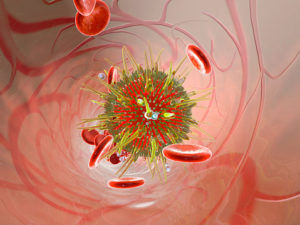Pathogen reduction technology (PRT) hold promise for eliminating many known and emerging pathogens in donated blood and thus preventing transfusion transmission. The performance of the Mirasol system, which uses a combination of riboflavin and ultraviolet light to inactivate pathogens and any remaining white blood cells, was recently tested on whole blood (WB) in a two-center, prospective, single-blinded randomized clinical trial. In order to determine survival and recovery of cells stored in AS-3, WB from 24 adult donors was split so that half was treated with the Mirasol PRT system and compared to untreated cells from the same donors. Although red blood cell (RBC) 24-hour recoveries were lower for the Mirasol treated cells (82.5+3.9% ) compared to untreated (91.7+6.8%), both met US FDA criteria (p<0.001). Furthermore, RBC survival and 21-day storage hemolysis were not as copacetic as untreated cells, but levels were still acceptable. Neoantigenicity was not observed for Mirasol treated cells, and no differences in adverse events were reported. WB treated with the Mirasol PRT system may be acceptable for transfusion after long-term storage.
Show Comments
Comments on this article are closed.

